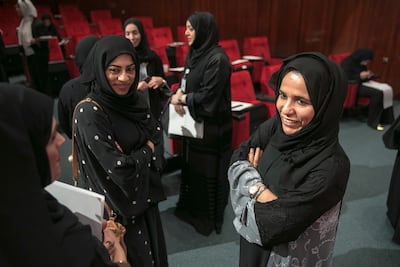Liberty versus security. It is one of the most discussed dichotomies in the world. People need both liberty and security, but often there has to be a trade-off. Since the start of 2020, the question of liberty and security came into sharp focus because of Covid-19. The need to stay healthy, and to keep communities safe, has meant giving up a number of freedoms, including the freedom of movement at various junctures. While the majority of people have accepted wearing a mask when in public, a small but vocal minority refused based on an argument that their freedom would be curtailed. However, the collective safety and freedom from Covid-19 are more important than the perception of freedom by a small minority.
Undoubtedly, how liberty or security is defined varies from person to person and from country to country. According to Abraham Maslow’s hierarchy of needs, security comes under both the most essential of “physiological” needs, such as shelter, and the second level of needs under “safety”. When Maslow first introduced the concept of a hierarchy of needs for all people in 1943, he named his paper “A Theory of Human Motivation”. The hierarchy ultimately reaches “self-actualisation”, which includes seeking liberty of choice. However, according to Maslow, the need for basic sustenance, security, love and self-esteem comes first.
Maslow’s “hierarchy of needs” is a useful prism to assess what motivates people, particularly in deciding where they choose to live and work. This is especially true for those who are fortunate enough to have the freedom to choose where to live or work – or both.
Freedom, usually of expression or political activity, is one that is often too lacking in the Middle East. And despite the many similarities that bind the region, each country has different levels of freedom – and security. War-torn countries are obviously at a different juncture than those that live in peace. One defining difference is how women are treated – and the freedoms that they enjoy.
Last week, Georgetown University published its “Women Peace and Security Index”, which is one of the most comprehensive reports of its type. The report ranks countries and the status of women in that country, using a whole host of criteria and indices. Unsurprisingly, the UAE ranked as the highest Arab country by far, ranking 24th globally out of 170 countries measured. And the UAE does not just stand out in the region, but globally also. It comes in higher than countries such as Israel, Italy, Japan and others. The next Arab country on the list is Bahrain, ranked at 97. Sadly, the last five countries are Iraq, Pakistan, Yemen, Syria and Afghanistan. This is a very worrying sign for the region and Muslim-majority countries. All of them are either in a state of war or are impacted by it.
It is important to take note of the UAE’s ranking. The country is no stranger to being rated competitively on the world stage – including being the fourth-best country to live and work in, according to this year’s HSBC Annual Expat Explorer Study. However, the Georgetown University report, published with support from the PRIO Centre on Gender Peace and Security, is of particular significance. The UAE has stood out in the Arab world as a place where women enjoy freedom, security and opportunities hard to match elsewhere, and the evidence is clear. The UAE ranked as the safest country in the world for women according to the report. It scored 98.5 per cent on community safety, the highest score globally. Community safety can be measured in a number of ways; it includes the freedom to dress as a woman pleases, the freedom to drive and walk in safety and the freedom to go about everyday life without the fears that too many women in too many societies and communities feel.

The Georgetown WPS index charts three main indicators of inclusion, justice and security. Inclusion encompasses education, financial inclusion, employment, mobile phone use and parliamentary representation. The UAE’s women enjoy 50 per cent representation in the FNC, and 100 per cent cell phone use – however financial inclusion is at 76.4 per cent. That is above average for many countries, but can be improved. The next indicator is of justice, where the absence of legal discrimination, the "son bias" and "discriminatory norms" are measured. The UAE leads the region and many other countries on these indicators in its aggregate score. And in security, it leads globally.
These are important barometers of progress and are the result of hard work and decision-making aimed at securing a woman’s place in society, at home and at work.
On a personal note, I have been lucky enough to have lived in seven countries and visited over 45 others, and I have found no place safer as a woman than the UAE. And yet, sadly, my country of origin, Iraq, tails behind with some of the worst indicators globally. After being the home of the first female judge and minister in the Arab world, back in the 1950s, Iraq now has the lowest scores for employment – with only 10 per cent – and community safety. The difference between the two countries is one more reminder that the successes of a nation must never be taken for granted, and that it is the result of years of dedication, hard work and a rejection of complacency.













